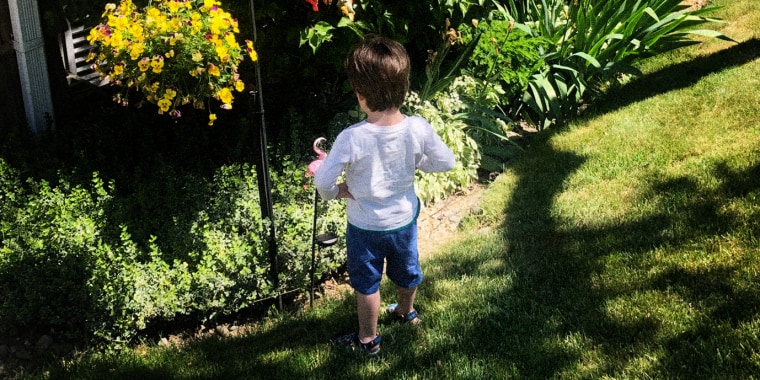When I was a kid growing up in San Francisco, there was a rash of kidnappings that terrified parents and children. My white, Jewish mother — always paranoid and protective — constantly feared that my twin sister and I might be next. But we never paid her any mind; after all, we’d say to her, “They don’t kidnap Black kids.”
Of course this is not actually true: Black children generally comprised some 37 percent of all missing children in the U.S. in 2018, even though African Americans are roughly 13 percent of the nation’s population (and were a smaller percentage of the population in the 1980s). But we only saw missing white kids in the news, so we assumed this made us inherently immune from abductions.
But now the parenting shoe is on the other foot. Owing to a bit of genetic gymnastics, both of my twin sons are very white-presenting: One has very fair skin, aqua-blue eyes and ruler-straight hair, while the other has the tiniest touch of melanin, dark eyes and grand, sweeping auburn curls. Growing up with a white mother, as well as Black and Asian uncles and cousins, I have no illusions that folks need to look alike in order to be family. Still, I never imagined that I’d have sons whom the world would perceive as white.
My sons — despite their inexplicable need to hit each other with toy dinosaurs — are obviously perfect and I would change nothing about them. But as they are growing, I continually realize we inhabit a world where race, their white adjacency and perceptions of privilege will be rearing their Medusa-like heads.
It happened recently when we were visiting my mom, who now lives in a town north of Manhattan, New York City. Although it’s not entirely white, when I visit her residential development, I’m usually the person there with the darkest skin — which is fine because, except for a few years when I lived in Harlem, that's almost always been the case wherever I go.
While we were there, sitting on my mom's deck, my son insisted that he'd seen a flamingo.
Dragging me by the hand, my kid pleaded with me to find the bird. So we wandered down the grassy hill outside of my mom's porch and into a neighbor’s front yard where — low and behold — stood a tiny pink plastic flamingo.
“I want to touch it,” he said. “Please, please, please can I, Daddy?” And without thinking, I said, "Sure, touch the flamingo and then we’ll go home for some ice cream.”
Minutes later, as we tucked into bowls of cookies-and-cream, did the magnitude of what had just happened sink in. Even as a Black man, it took me that long to remember — intuitively, soulfully, painfully — that my boy would never have been allowed to touch that stranger's flamingo were he also perceived as Black.
As a white-appearing kid, he experienced an act of childhood wonderment that most Black parents would instinctively never allow their Black children.
But just like little brown kids supposedly weren’t abducted in 1980s Northern California, little white kids today aren’t shot by their neighbors for wandering onto their lawns or pools or local playgrounds.
But Black kids are: Tamir Rice, for instance, was killed by Cleveland police after sitting on a swing and playing with a toy gun. Video released of the incident shows the officer shooting Rice dead in less than two seconds — less time than it’s taken to read this sentence — after arriving on the scene.
Rice was just 12 years old, and the officer who shot him was never indicted. Almost nearly as horrid, Black teens and children, often far younger than Rice, have been violently arrested in their own schools, at public pools or simply on their way home.
My boys aren’t even 4, but the memory of Rice — and Michael Brown and Eric Garner and George Floyd — hovers over me wherever we go. In our family’s case, Rice’s legacy is more of a cautionary tale because my white-appearing sons are never likely to be gunned down by trigger-happy cops who shoot Black kids first and ask questions later. Though their Black father could be, and they could be with me, like the 4-year-old daughter of Philando Castile's partner was.
So my son got to touch that flamingo.
On one level, I am relieved for my sons: There have certainly been times I have wished I had the privileges I realize they will enjoy. It certainly would have made life less frightening at times. I do want them to be challenged by life — both by the complexities of race and by the inner complexities that make them so unique. But no parent ever wants those challenges (or even touching a toy flamingo) to result in their deaths.





